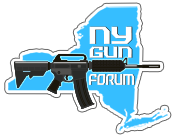livingston
20×102mm Vulcan
Dominion Voting System Corp., was founded in Canada in 2002-2003 with an openly progressive mission – to develop electronic voting software which would not just process ballots, but also “mobilize voters” – a popular slogan of the Left.
It is not clear what products or services the company has developed. It found almost no buyers, until Obama was elected in 2008. In 2009, New York ordered a few dozens of systems from it. In 2010, Obama’s DOJ (Holder – Mueller) took the EVS unit, purchased from Diebold, away from the market leader ES&S, and gave it to Dominion. This gift included the installed base of about 30% of the US electronic voting systems (EVS) market. Within two weeks, Dominion also acquired Sequoia, which was formally spun from Smartmatic, but ties between these two companies remained. Smartmatic is a UK based EVS vendor, whose software was used by Chavez to “win” the Venezuelan referendum in 2004. Smartmatic’s unit Sequoia faced troubles in the US. Those troubles quickly ended when its assets were purchased by Dominion.
Thus, the new Democratic party created a pocket pet corporation, gave it the lion share of the US electronic voting systems market. Dominion is ideologically aligned with the Democratic Party, owes it everything it has, dependent on it for most of its business, and needs it in power to avoid prosecution for corruption. Sounds like a conflict of interest.
At the beginning of 2009, there were four major US EVS suppliers: ES&S, Premier (a unit of Nixdorf-Diebold), Sequoia (linked to Smartmatic), and Hart Intercivic. The market size was a few hundred million dollars a year and growing. EVS vendors competed among themselves and against traditional pen and paper voting. There were no barriers to entry for other competitors, other than government’s regulations.
Electronic voting, which sounded like a good idea in the 1980s is so no more. Electronic voting machines and their vendors were under criticism for many years. In 2007-2008, this criticism materialized in the SEC, DOJ, and states lawsuits against the voting machines vendors. Diebold was catching flack for having a prominent Republican party supporter among their top executives. It spun its EVS unit as a separate company Premier, and was looking for a buyer. The existing vendors were burdened with liabilities, including DOJ investigations. This opened up an opportunity for the Obama administration.

 defyccc.com
defyccc.com
It is not clear what products or services the company has developed. It found almost no buyers, until Obama was elected in 2008. In 2009, New York ordered a few dozens of systems from it. In 2010, Obama’s DOJ (Holder – Mueller) took the EVS unit, purchased from Diebold, away from the market leader ES&S, and gave it to Dominion. This gift included the installed base of about 30% of the US electronic voting systems (EVS) market. Within two weeks, Dominion also acquired Sequoia, which was formally spun from Smartmatic, but ties between these two companies remained. Smartmatic is a UK based EVS vendor, whose software was used by Chavez to “win” the Venezuelan referendum in 2004. Smartmatic’s unit Sequoia faced troubles in the US. Those troubles quickly ended when its assets were purchased by Dominion.
Thus, the new Democratic party created a pocket pet corporation, gave it the lion share of the US electronic voting systems market. Dominion is ideologically aligned with the Democratic Party, owes it everything it has, dependent on it for most of its business, and needs it in power to avoid prosecution for corruption. Sounds like a conflict of interest.
At the beginning of 2009, there were four major US EVS suppliers: ES&S, Premier (a unit of Nixdorf-Diebold), Sequoia (linked to Smartmatic), and Hart Intercivic. The market size was a few hundred million dollars a year and growing. EVS vendors competed among themselves and against traditional pen and paper voting. There were no barriers to entry for other competitors, other than government’s regulations.
Electronic voting, which sounded like a good idea in the 1980s is so no more. Electronic voting machines and their vendors were under criticism for many years. In 2007-2008, this criticism materialized in the SEC, DOJ, and states lawsuits against the voting machines vendors. Diebold was catching flack for having a prominent Republican party supporter among their top executives. It spun its EVS unit as a separate company Premier, and was looking for a buyer. The existing vendors were burdened with liabilities, including DOJ investigations. This opened up an opportunity for the Obama administration.

Shocking History of Dominion Voting
Democratic party selected Dominion Voting as a pet corporation, and gave it the lion share of the US electronic voting systems market.
 defyccc.com
defyccc.com

